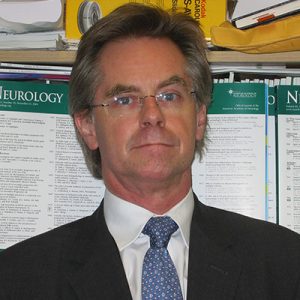
While there is an increasing number of therapies for MS all are of limited efficacy. Current therapies are aimed at slowing the progression of MS. Even if newer drugs are developed that can profoundly slow or even halt MS progression there will still be a large number of patients with clinically significant disability from previously active disease. There are no drugs at present that can replace or repair damaged myelin, oligodendrocytes, or neurons. Indeed, there are no drugs in development that are likely to address these issues. Given the results of our published work and that of others, it is likely that stem cell (both bone marrow derived or mesenchymal stem cells (MSCs) and neural stem cells (NSCs)) transplantation will play a role in such MS related tissue repair. Optimizing stem cell proliferation and differentiation will significantly facilitate their use in MS.
In relation to the effects of interferon beta on MSC neural differentiation, we have shown that both bone marrow- and brain-derived stem cells express the full complement of enzymes in the kynurenine pathway (KP) of tryptophan metabolism. We have shown that the KP in stem cells can be induced by interferon gamma and interferon beta. Such induction is known to lead to significant depletion of tryptophan in the cellular milieu, which in turn is now known to compromise rapidly dividing cells with consequent impairment of differentiation. These data are now being prepared for publication. Hence this project has established an essential platform upon which further stem cell transplant studies can be built. Moreover, the KP results provide a unique mechanism whereby stem cell division and differentiation can be significantly enhanced.
Adult stem cells are not only a source of new healthy cells, but have the ability to enhance our natural tissue repair responses.
Professor Bruce Brew and his colleagues are realizing the value of adult stem cells as “homing beacons” to attract the body’s own repair machinery to sites of damage. Professor Brew notes “Stem cells have not been previously used in this way to treat disease and positive results could herald new treatments for all forms of MS.”
In most tissues, basic cellular processes rely on neurologically active products made through the “kynurenine pathway”. Some of these products are neuroprotective (the good guys!) While others potentiate neural damage (the baddies!) This study will be the first comprehensive analysis of the kynurenine pathway to work out who’s who.
By mapping this pathway, Prof Brew will identify the molecular culprits that compromise the success of adult stem cells as a novel treatment for MS. Finding ways to suppress the immune response would prevent the rejection of transplanted tissue. This will be crucial if transplants of adult stem cells prove to be a viable treatment for MS.
Prof Brew will optimize the conditions that facilitate the activity of adult stem cells. This project will test compounds such as MS drugs and “cytokines” (chemicals secreted by adult stem cells that call in the immune system cavalry) for their ability to enhance the role of neuroprotective agents, while stopping neurotoxic demons in their tracks.
The ability of current MS drugs to minimise the damage to neural cells remains unknown. This study happens at an exciting time when the power of stem cells to treat disease is only just being understood.
Updated: 06 January, 2008

